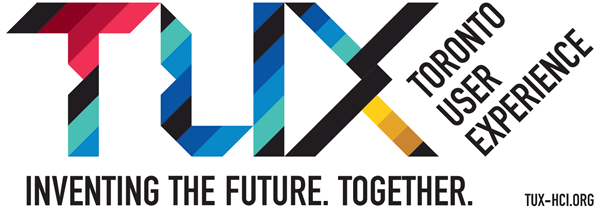Tux Member Presentation
Speaker
Joseph Jay Williams: Combining Active Learning & Human Computation for A/B Experimentation: Perpetually Enhancing and Personalizing User Interfaces
2018-09-25 12:30 at MaRS

Abstract
How can we transform the everyday technology people use into intelligent, self-improving systems? I consider how to dynamically enhance user interfaces by using randomized A/B experiments to integrate Active Learning algorithms with Human Computation. Multiple components of a user interface (e.g. explanations, messages) can be crowdsourced from users, and then compared in real-world A/B experiments, bringing human intelligence into the loop of system improvement. Active Learning algorithms (e.g. multi-armed bandits) can then analyze data from A/B experiments in order to dynamically provide more effective A or B conditions to future users. Active Learning can also lead to personalization, by facing the more substantive exploration-exploitation tradeoff of discovering whether some conditions work better for certain subgroups of user profiles (in addition to discovering what works well on average).
I present an example system, which crowdsourced explanations for how to solve math problems from students and teachers, simultaneously conducting an A/B experiment to identify which explanations other students rated as being helpful. Modeling this as a multi-armed bandit where the arms were constantly increasing (every time a new explanation was crowdsourced) we used Thompson Sampling to do real-time analysis data from the experiment, providing higher rated explanations to future students (LAS 2016, CHI 2018). This generated explanations that helped learning as much as those of a real instructor. Future work aims to discover how to personalize explanations in real-time, by discovering which conditions work for different subgroups of user profiles (such as whether simple vs complex explanations are better for students with different levels of prior knowledge or verbal fluency).
Future collaborative work with statistics and machine learning researchers provides a testbed for a wide range of active learning algorithms to do real-time adaptation of A/B experiments, and integrate with different crowdsourcing workflows. Dynamic A/B experiments can be used to enhance and personalize a broad range of user-facing systems. Examples include modifying websites, tailoring email campaigns, enhancing lessons in online courses, getting people to exercise by personalizing motivational messages in mobile apps, and discovering which interventions reduce stress and improve mental health.
Bio
Joseph Jay Williams is an Assistant Professor in Computer Science at the University of Toronto. He was previously an Assistant Professor at the National University of Singapore’s School of Computing in the department of Information Systems & Analytics, a Research Fellow at Harvard’s Office of the Vice Provost for Advances in Learning, and a member of the Intelligent Interactive Systems Group in Computer Science. He completed a postdoc at Stanford University in Summer 2014, working with the Office of the Vice Provost for Online Learning and the Open Learning Initiative. He received his PhD from UC Berkeley in Computational Cognitive Science, where he applied Bayesian statistics and machine learning to model how people learn and reason. He received his B.Sc. from University of Toronto in Cognitive Science, Artificial Intelligence and Mathematics, and is originally from Trinidad and Tobago. More information about his research and papers is at www.josephjaywilliams.com.
